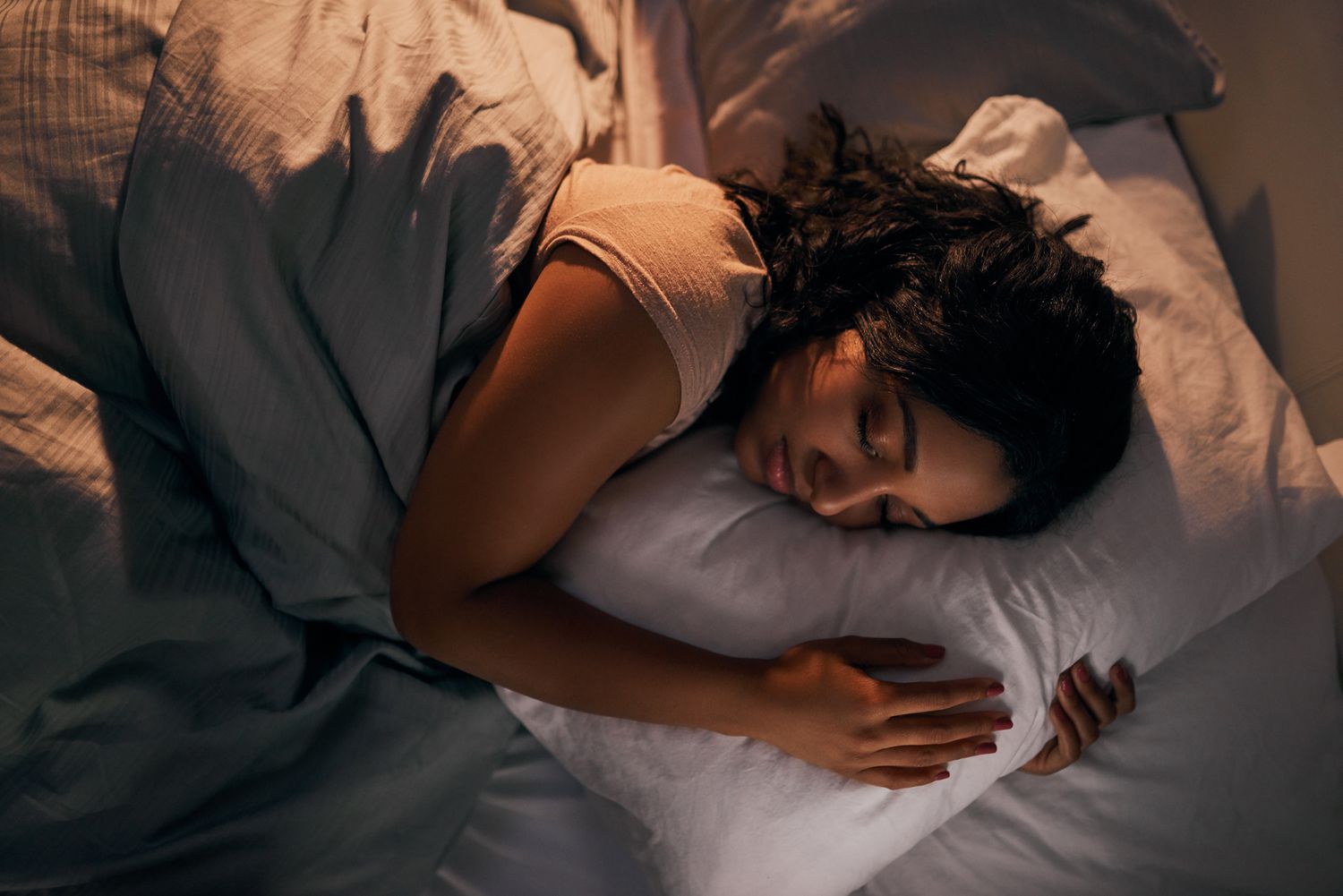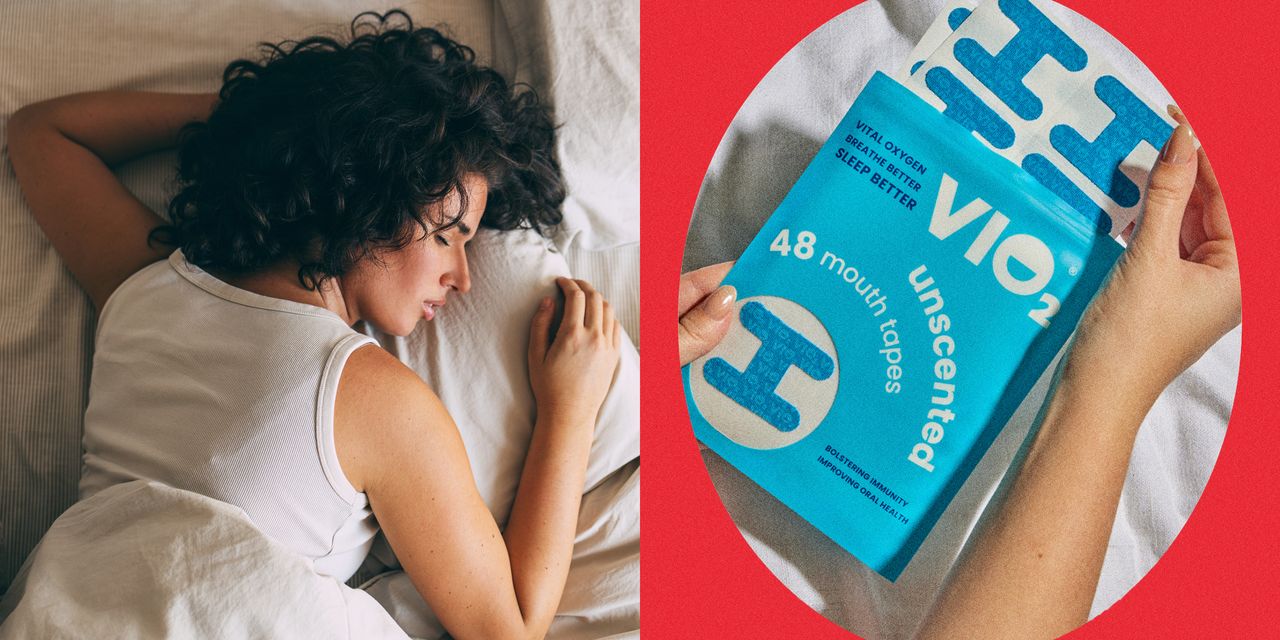Blog
Why Sleeping Enough Is the Best Habit to Live Longer

- Prioritizing quality sleep may reduce your risk of heart disease, Alzheimer’s and early death.
- Deep, regular sleep supports brain health, hormone balance and long-term metabolic function.
- Seven to nine hours of restful sleep is the No. 1 daily habit for a longer, healthier life.
You’ve no doubt read hundreds of articles over the years with helpful advice for creating healthy habits that improve the quality and quantity of your life—everything from walking 10,000 steps a day and eating more of a plant-based diet to staying hydrated and keeping a gratitude journal.
And while all of these are indeed healthy habits, they only yield their most impressive results when paired with one critical habit that’s often overlooked. In fact, about 1 in 3 adults aren’t meeting the bare minimum in this category (a category as basic as the need to eat, drink or breathe), and this deficiency could lead to a host of physical and mental problems, injuries, loss of productivity and a greater likelihood of early death.
Getting Better Sleep Is No. 1
The most important habit to start ASAP if you’re one of the 33% of American adults who don’t get enough rest or sleep every day is getting your full 40 winks each night.
“Sleep plays a critical role in every aspect of our physical, cognitive and emotional health and well-being,” says Shantha Gowda, Psy.D., DBSM, a licensed clinical health psychologist who is board-certified in behavioral sleep medicine and built the first sleep and circadian health program for the Marine Corps Special Operations Command. “Insufficient sleep adversely affects all of our organ systems.”
But it goes beyond that—many experts consider sufficient sleep the key to longevity, and study results support this theory.
How Does Sleep Help
Sure, enough sleep can improve your mood and help you meet the demands of everyday life, but those obvious results are just the tip of the iceberg.
“Adequate sleep is crucial for maintaining genomic stability, reducing oxidative stress and enhancing telomere length, all of which are hallmarks associated with aging,” says sleep and longevity expert Alka Patel, M.B.B.S. “In the context of longevity, sleep is not just a passive state but an active, dynamic process crucial for maintaining health and optimizing longevity.”
Additionally, she explains that sleep supports neuroplasticity, the brain’s capacity to change and rewire itself based on learning and experience, which is essential for cognitive health and memory consolidation. Also, it regulates the hormones responsible for appetite, thus playing a role in maintaining healthy body weight and reducing the risk of metabolic disorders.
Patel says that research on the relationship between deep sleep and Alzheimer’s disease from the University of California, Berkeley, provides some compelling insights and suggests that non-REM slow-wave sleep, also known as deep sleep, can act as a protective factor against the memory decline associated with Alzheimer’s disease. The study found that those with higher amounts of deep sleep showed better memory function than those with less deep sleep.
Research also provides significant insights into the relationship between sleep and metabolic health, particularly focusing on how sleep deprivation can lead to insulin resistance, Patel continues. One study demonstrates that even a single night of partial sleep deprivation can induce insulin resistance in multiple metabolic pathways in healthy subjects.
Sleep regularity and quality may also help reduce all-cause mortality and cardiovascular mortality. “We know that poor sleep quality/quantity increases the risk for heart disease, and this supports this concept—emphasizing that the more beneficial sleep habits an individual has, the less likely they are to die early,” says Gowda.
How Much Do You Really Need?
What constitutes “adequate sleep” varies by person, making it impossible to set a number to strive for across the board. The National Sleep Foundation recommends an average of seven to nine hours of sleep per night for adults 18 to 64 years old and seven to eight hours for older adults.
Most adults know their own sweet spot, whether or not they routinely achieve it, and rely on such indicators as dozing off at inappropriate times, dark circles under their eyes and dips in concentration, energy levels or mood reflected in day-to-day activities to know when they’ve been missing the mark too often.
“When you wake up feeling refreshed and productive as you tackle your day and don’t have overall complaints about your sleep, these are typical signs you’re getting sufficient quality and quantity sleep,” says Lara Barbir, M.S., Psy.D., a Southern California-based clinical psychologist and supervisor specializing in trauma, sleep medicine and women’s health.
Of course, you don’t want to swing that pendulum too far in the slumber direction, either. “It’s important to note that there’s a certain threshold point where getting too much sleep is actually associated with increased risk of mortality,” Barbir cautions.
How to Get More Sleep
Assuming you’ve already created an environment conducive to sleep—such as a cool temperature, blackout curtains or an eye mask, and white noise or earplugs—try the following tips for increasing your nightly shut-eye:
- Consistency is key. “Waking up at the same time each day (or at least within approximately one hour) helps align the master clock in your brain, which can help maintain more consistency of bedtime and wake time,” says Gowda.
- See the sun. Getting sunlight in the morning after waking up and throughout the afternoon is beneficial. “It helps to build drive for sleep,” says Gowda. “It also helps us overcome morning grogginess to feel more alert. Additionally, it helps sync our master clock.”
- Track your sleep. We may not even be aware of how poor our sleep is until we see the numbers. “Embracing a data-driven approach using sleep tracking technology can provide invaluable insights into individual sleep needs and patterns, enabling personalized strategies to optimize sleep for a longer, healthier life,” suggests Patel.
- Take a power nap. Napping can be helpful if you did not get sufficient sleep the previous night or know that you will not be able to get enough sleep the upcoming night. Gowda says a power nap, which is less than 30 minutes, can give you energy and take the edge off. However, if you missed a great deal of sleep, then it may be better to take a longer nap (about 90 minutes).
- Unwind intentionally. Gowda says to create a buffer period between when you end your day and when you get into bed to allow time for your mind and body to unwind from your busy day. Aim for 15 to 60 minutes to engage in positive and relaxing activities like a warm bath, puzzles, happy sitcoms, gratitude journaling, prayer, mindfulness exercises, deep breathing or light stretching.
And if you notice any unusual sleep behaviors during the night—such as kicking or jerking movements of the legs, snoring, gasping for air, morning headaches, trouble falling or staying asleep—Barbir says these are signs of possible sleep disorders that the tips above will not fix alone and thus warrant further evaluation by a specialist.
Our Expert Take
Sacrificing sleep to meet life’s nonstop demands may seem like a harmless choice in the moment. Still, sleep deprivation does more than leave you a bit cranky or foggy-brained—plus, it has been shown to have an adverse relationship to longevity. By prioritizing a full night’s sleep on a regular basis, you’re providing your body with an optimal environment that will help you thrive for decades to come. So go ahead and take that catnap, skip an early-morning workout if you didn’t sleep well the night before, and slip into bed an hour earlier if the mood strikes, sans guilt. Prioritize sleep like your life depends on it.












